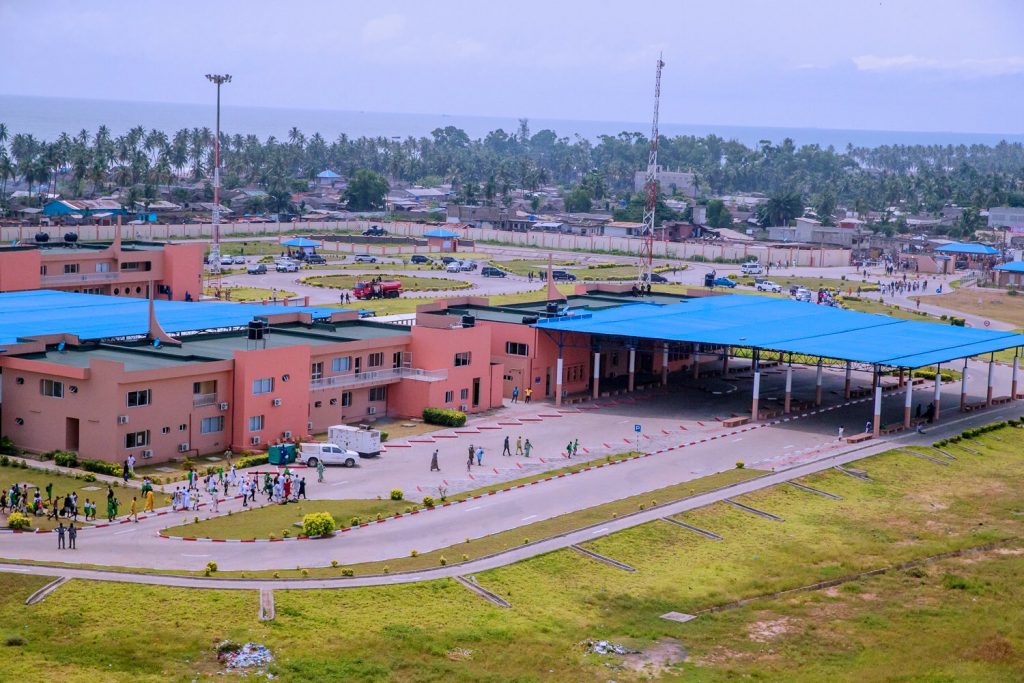There was jubilation in Seme, near Badagry, Lagos State, on Wednesday as Federal Government ordered the reopening of four land borders across the country, this is as a former member of the National Assembly, who represented the Kaduna Central Senatorial District in the 8th Senate, Shehu Sani, has said the closure of Nigeria’s land borders did not yield any result.
Sani said the closure of the borders rather worsened the economic situation of the country and inflicted hardship on Nigerians.
The Minister of Finance, Budget and National Planning, Mrs Zainab Ahmed, announced the immediate reopening of four land borders after the Federal Executive Council meeting held virtually in Abuja on Wednesday.
The News Agency of Nigeria (NAN) reports that the Federal Government had on Aug. 21, 2019, ordered the closure of Nigerian borders to curb smuggling of goods and weapons.
“The president has approved the reopening of four land borders, namely– Seme, South-West, Ilela, North West, Maigatari border in the North-West and North-Central and Mfum in the South-South.
“These four land borders will be opened immediately, while the remaining land borders are directed to be reopened on or before Dec. 31,’’ the minister told State House Correspondents in Abuja on Wednesday.
She said that Buhari also directed that while the borders were being reopened, the ban on the importation of rice, poultry and other products still subsisted and would be implemented by the border patrol team.
Meanwhile, a large number of stakeholders and residents of Seme border community expressed their joy at the development and commended President Muhammadu Buhari for reopening the land borders.
Reacting, the Association of Nigeria Licensed Customs Agents (ANCLA), Seme Border Chapter, commended the Federal Government for reopening the land borders.
Alhaji Bisiriyu Fanu, ANCLA Seme Chapter Chairman, said that the reopening of the land borders was overdue, saying that the gesture would boost trans- border trade in the ECOWAS sub-region.
Fanu said that many freight forwarders had lost their means of livelihoods as a result of the closure because their goods were stuck on both sides of the border.
The Onimeke of Imekeland, Oba Abraham Ogabi, also said that the reopening of the land border was a welcome development.
Ogabi said that the closure had paralysed socioeconomic activities of border communities which relied on the trade between Republic of Benin and Badagry communities.
“We are in the border area, some of our people are married to their women and we do legitimate business with them.
“But the closure has affected our socioeconomic relationship with the border communities of Benin Republic.
“We thank the President and members of the FEC for reopening of the land borders,” he said.
Meanwhile, a former member of the National Assembly, who represented the Kaduna Central Senatorial District in the 8th Senate, Shehu Sani, has said the closure of Nigeria’s land borders did not yield any result.
Sani said the closure of the borders rather worsened the economic situation of the country and inflicted hardship on Nigerians.
The ex-senator spoke on Wednesday on a PUNCH Online interview programme, The Roundtable.
His remarks came shortly after the Minister of Finance, Budget and National Planning, Zainab Ahmed, announced after a Federal Executive Council meeting in Abuja that four of the nation’s land borders have been reopened.
Nigeria had in August 2019 closed its land borders to curtail illegal importation of drugs, small arms and agricultural products into country from neighbouring West African nations.
But Sani said the 16-month border closure did not help boost the country’s agricultural output or rice production as claimed by the Federal Government.
“We have not achieved anything by closing the borders but have only inflicted hardship on the border communities and Nigerians.
“The closure of borders has not stopped herdsmen and bandits from moving in with weapons.
“If it is about rice, are we now producing enough? No, we are not doing that. The cost of a bag of rice has even become more expensive because of the closure of the borders,” he said.
The former lawmaker added that the closure of the borders is not the solution to smuggling but the use of technology and the empowerment of the immigration, the military, the police, and other security personnel manning the borders.
Sani, who also noted that Nigeria’s terrorism has spread to its West African neighbours including Benin Republic, Chad, Cameroon, and others, stressed that decisive action must be taken by the regime of the President, Major General Muhammadu Buhari (Rtd.) to end insecurity in the country.


































































